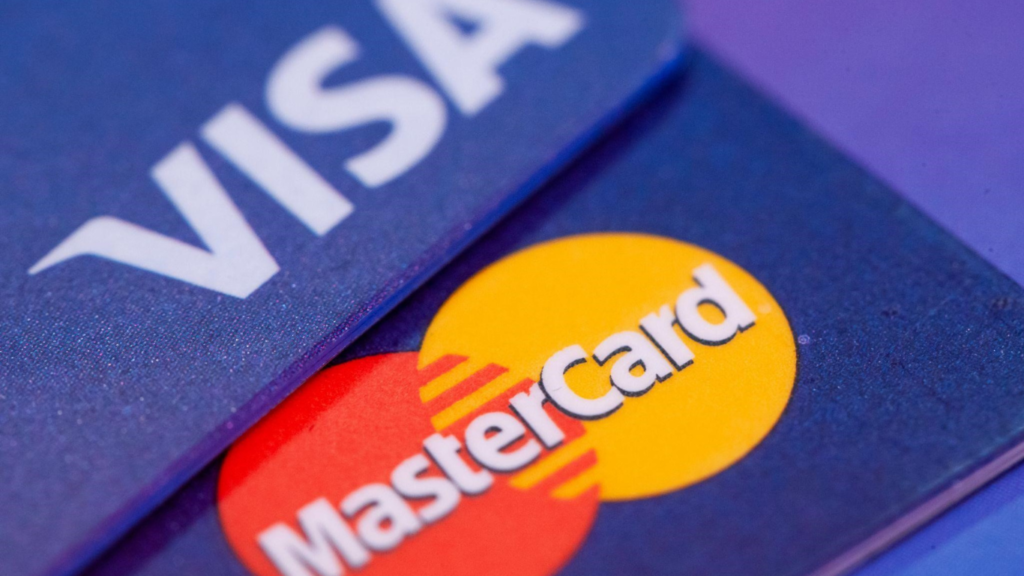Blockchain technologies and digital currencies are perceived as potential threats to traditional financial institutions, including industry leaders like Visa and Mastercard. However, these card network operators, holding a combined market share of over 70%, are actively exploring the integration of blockchain for cross-border payments and embracing cryptocurrencies for card transactions and rewards.
Table of Contents
ToggleRecognizing the Shift
Visa and Mastercard acknowledge the rising adoption of blockchain technology and the potential risk of falling behind in the rapidly evolving financial landscape. Their motivation extends beyond staying competitive, as they aim to secure a share of the revenue generated from the increasing flow of funds to and from blockchain networks.
Key Initiatives of Visa and Mastercard
Both Visa and Mastercard are engaged in a variety of initiatives within the blockchain and cryptocurrency space. These initiatives include experiments with blockchain for cross-border payments, participation in Central Bank Digital Currency (CBDC) trials, and collaborations with numerous crypto platforms to issue cryptocurrency-linked debit and credit cards.
Also Read : ITC share price, ITC Ltd’s Strong Financial Performance in Q3 FY24
Visa’s Ventures in Blockchain
Visa, in particular, has been actively involved in diverse partnerships and projects, adopting a blockchain-agnostic approach. The company is exploring various blockchains to enhance payment rails, reduce friction for end-users, and understand consumer preferences in this rapidly evolving technology landscape.
Cross-Border Transfers
Visa has been collaborating with Circle to trial cross-border fiat currency payments on the Ethereum blockchain since 2021. Furthermore, the company expanded its stablecoin settlement capabilities to the Solana blockchain, emphasizing high processing speeds and lower transaction costs.
Account Fee Abstraction
Visa experimented with Ethereum’s fee abstraction feature, simplifying user interaction with blockchain-based payments and eliminating the need for users to hold Ether to pay gas fees.
CBDC Trials
Visa is actively participating in CBDC trials with various central banks, exploring the digital settlement of tokenized deposits and contributing to the evolution of digital currencies.
Crypto Credit and Debit Cards
Visa collaborates with over 70 crypto platforms to issue cryptocurrency-linked debit and credit cards, streamlining the conversion of crypto to fiat currency for making purchases.
Patent Pursuits
Visa’s commitment to blockchain and cryptocurrency innovation is evident in its numerous patent applications related to digital currency, digital wallet software, and NFTs.
Mastercard’s Blockchain Strategies
Mastercard, too, has outlined its strategy in the digital assets space, emphasizing providing more choices in moving digital value. The company has forged partnerships, created platforms, and explored innovations to support the adoption of blockchain technology and cryptocurrencies.
Multi-Token Network (MTN)
Mastercard introduced the Multi-Token Network (MTN), a blockchain-powered app store designed to enhance transaction efficiency within digital asset and blockchain ecosystems. The network focuses on creating trust in various areas and has already seen collaborations with partners like Lirium, Bit2Me, Mercado Bitcoin, and Uphold.
CBDC Partnerships
Mastercard actively participates in CBDC projects globally through its CBDC Partner Program, fostering collaboration with blockchain technology and payment service providers to drive innovation and efficiency.
Focus on Fraud Prevention
Mastercard places a significant emphasis on compliance and fraud detection in its crypto efforts. Partnerships with regulatory technology platforms, such as Feedzai, demonstrate the company’s commitment to combatting crypto-related money laundering and financial scams.
Also Read : Indian Economy Explosive Surge: Unveiling the Masterplan to $7 Trillion by 2030!
Patent Leadership
Mastercard has outpaced Visa in patent applications, securing 153 patents that encompass various aspects of blockchain technology, including payment card verification and APIs for crypto service providers.
Conclusion
Visa and Mastercard’s extensive involvement in blockchain and cryptocurrency signifies their recognition of the need for innovation in the evolving financial landscape. By integrating these technologies into their ecosystems, the payment giants position themselves as facilitators of transactions, actively shaping the future of digital global finance while ensuring compliance with security and regulatory best practices.

